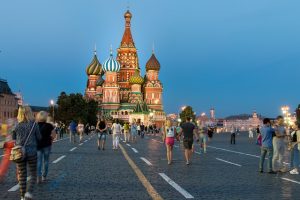大変革後に混迷・迷走するロシアの回想 ドイツがまさかの遷都 「パンドラの箱が開く?」意味とは?
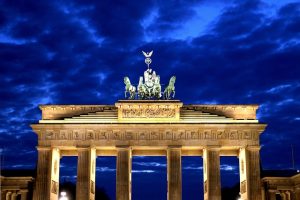
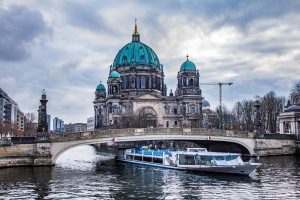
大変革後に混迷・迷走するロシアの回想
NO2 ドイツがまさかの遷都 「パンドラの箱が開く?」意味とは?
前回少し紹介した、ベルリン訪問に関連した回想です。
私が訪問した、1990年代初頭は、東西冷戦の終結に伴う
東西ベルリンの統合などがあり、街が活性化し、大型事業が目白押し状態でした。
西ベルリンを中心に大型トラックが走り回っていました。
「まさに大型イベント会場、設営の様な工事風景?」これには驚きました。
私の勝手な想像ですが、「ロシアのウクライナ侵攻、終戦後の復興計画などでは、
同じような感じになるのでは?」とも思っています。
多分、誰もが~。
私がベルリンを2泊3日の予定で訪れた時は、復興事業に関連する
大型公共工事等のため、市内のホテル料金も跳ね上がり、
普通のビジネスホテルが1泊3万円以上という超高額になっていました。
言葉を変えれば、まるで「オリンピック特需」のような感じでしょうか?汗
私の予算は1泊1.5万円程度なので、なかなか見つからず、
知人のドイツ人に探してもらいました。
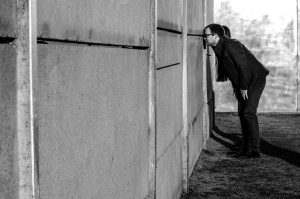 イメージ
イメージ
そして、やっと見つかったホテルはなんと東ベルリンでした。
このホテルは以前少し書きましたが、
古いユースホステルのような感じのホテルで、
1ルームにシャワー、トイレ、古いベッドに机一つ、冷蔵庫もエアコンもなし。
もちろんテレビもありませんでした。汗。
まあ、あっても、番組はドイツ語かロシア語なので理解できませんでしたけど!(笑)
室内の照明は、天井から小型のライトが一つぶら下がっているだけでした。
ホテルなのに最新の機器が何もない!
最初は「からっぽの空間に一人ポツンとたたずみ、初めての異次元、異空間にいる」
感じでした。
少し前に訪問した、同じドイツでも、ミュンヘンやフランクフルトのホテルとは
別世界でした。
多分、日本人には「全く想像できないホテル」だったと思います。汗
当然、今では西ベルリンと同じ仕様になっているとは思います!(笑)
また、こうした復興事業の進行の最中にも、
西側の国にも大きな動きがありました。
それは~。
西ドイツが「首都を変更」したのです。
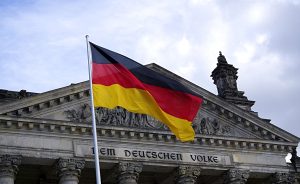
ドイツが首都をボンからベルリンに遷都を決めたのは、1991年のことです。
事前の予想では、「首都はボンのまま継続との予測が強かった」のを覚えています。
しかし、現実は違いました。
理由としては、冷戦の終結に伴い、東西ドイツが統一されたため、
歴史的にドイツの首都だったベルリンを新たな首都とすることが決定されました。
ボンは西ドイツの首都として機能していましたが、統一後はベルリンが
政治的、文化的な中心地としての役割を再び果たすことが期待されました。
これに関して、私には忘れられないコラムがあります。
1991年初頭のことですが、私は英字新聞を読んでいると、
イギリス人ジャーナリストのコラムが目に入りました。
タイトルは「パンドラの箱が開く?」でした。
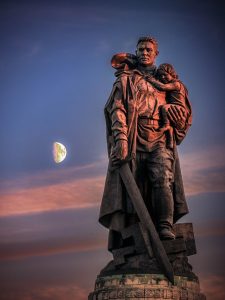 イメージ
イメージ
内容は、ドイツが冷戦終了により国民投票で首都を「ボン」から
「ベルリン」に遷都したことからの連想です。
著者は遷都の理由が歴史的な理由だけでは、不明確であり、
首都は現状の「ボンのままで良いのでは?」と書いていました。
そして、ベルリンが首都になると、将来再び戦争になる可能性が
あるとの指摘でした。
私は当時、冷戦終了期で世界的に平和的な雰囲気が漂う中で、
これは「現実的ではないだろう」と思いました。
しかし、最近のロシアのウクライナ侵攻等により、NATOが強く関わり、
ひょっとしたら「ドイツ・首都ベルリン=戦争の悪夢が再来するかも?」とも
思い始めました。
長年続く戦火を日常化する独裁者の独断の怖さも感じます。
ロシアのプーチン大統領が、時折表明する「核兵器の使用」が
現実味を帯びてくる可能性が高まっている様にも感じます。
杞憂なら良いのですが...。
歴史的に振り返っても、ゴルバチョフのペレストロイカは、
ソ連の崩壊だけでなく、
本当に東欧諸国の民主化にも大きな影響を与えたと思います。
私は東ベルリン訪問を通してロシアにも少し思い出もあり、
変革後のロシアの社会、一般の人の生活にも興味がありました。
そうした中、最近偶然、コロナ騒動の前までモスクワに滞在していた
ビジネスマンと知り合い、ロシアの現状をいろいろ聞いたので
ご紹介したいと思います。
次回に続く!

Here is the English translation of the provided text:
Reflections on Russia Amid Confusion and
Turmoil After the Great Upheaval
No. 2: Germany’s Unexpected Capital Relocation—
What Does “Pandora’s Box Opening” Mean?
This is a reflection related to my visit to Berlin,
which I briefly introduced last time.
When I visited in the early 1990s,
the city was undergoing revitalization due to the end of
the Cold War and the integration of East and West Berlin,
with large-scale projects springing up everywhere.
Large trucks were racing around the city,
mainly in West Berlin.
I was surprised by this construction scene that resembled
a massive event venue being set up.
From my own imagination,
I wonder if a similar scene will unfold with the reconstruction plan
after the end of Russia’s invasion of Ukraine.
Probably, everyone might think the same way.
When I visited Berlin for a planned three-day, two-night stay,
due to the large public works projects related to reconstruction,
the prices of city hotels had skyrocketed. Ordinary business hotels
were priced at over 30,000 yen per night, an incredibly high rate.
In other words, it felt like a “special demand surge for the Olympics.”
Sweating at the cost, my budget was around 15,000 yen per night,
so I had difficulty finding accommodation.
A German acquaintance of mine helped me search,
and the hotel we finally found was, surprisingly,
in East Berlin.
 image
image
I briefly wrote about this hotel before,
but it was like an old youth hostel,
with a shower, a toilet, an old bed, a desk,
no refrigerator or air conditioning,
and of course, no television.
Even if there had been a TV,
it would have been in German or Russian,
which I wouldn’t have understood anyway! (Haha!)
The room’s lighting consisted of a single small light
hanging from the ceiling.
There was nothing modern about this hotel!
At first, it felt like I was standing alone in a vast,
empty space, in an alien, otherworldly dimension.
It was a completely different world compared to the hotels
in Munich or Frankfurt,
which I had visited in Germany shortly before.
For most Japanese people,
it would have been an unimaginable hotel,
I believe! (Sweating again) Naturally,
I expect that by now,
East Berlin hotels have the same specifications as those in West Berlin! (Haha!)
Meanwhile, even during the progress of these reconstruction projects,
there was a major movement in the Western countries.

That was… West Germany decided to change its capital.
The decision to relocate the capital from Bonn to Berlin
was made in 1991.
I remember that prior to the decision,
the strong expectation was that
Bonn would remain the capital. However, the reality was different.
The reason was that, with the end of the Cold War and
the reunification of East and West Germany,
it was decided that Berlin,
which had historically been Germany’s capital,
would once again become the new capital.
Bonn had functioned as the capital of West Germany,
but after reunification,
Berlin was expected to resume its role as the political and
cultural center of the country.
Regarding this, there’s a column I’ll never forget.
In early 1991, while reading an English newspaper,
I came across a column written by a British journalist.
The title was, “Is Pandora’s Box Opening?”
 image
image
The content of the article drew parallels to Germany’s relocation of
its capital from Bonn to Berlin,
following the Cold War’s end and a national referendum.
The author argued that the reason for the relocation wasn’t clear
if based solely on historical reasons and suggested that
Bonn should remain the capital.
Furthermore, the author pointed out the possibility that with
Berlin as the capital, another war could break out in the future.
At the time, amidst the global atmosphere of peace
following the end of the Cold War,
I thought, “That’s not realistic.”
However, with Russia’s recent invasion of Ukraine and
NATO’s strong involvement,
I’ve begun to wonder,
“Could the nightmare of war involve Germany and
Berlin returns again?”
I also sense the frightening power of a dictator’s unilateral decisions,
where war becomes normalized over years.
President Putin of Russia occasionally hints
at the use of nuclear weapons,
and it feels like the possibility of such use is becoming more realistic.
I hope this is merely an unfounded fear…
Looking back at history,
Gorbachev’s Perestroika not only led to the collapse of
the Soviet Union but also had a significant impact on
the democratization of Eastern European countries.
My visit to East Berlin gave me some memories of Russia as well,
and I became interested in how Russian society and
the lives of ordinary people have been affected since the upheaval.
In this context,
I recently had a chance encounter with a businessman
who had stayed in Moscow
until just before the COVID-19 pandemic.
I would like to share the various things
I learned about the current situation in Russia.
To be continued!
